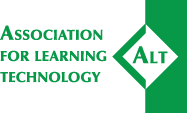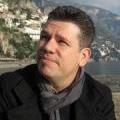ALT-C 2011 Pre-Conference Workshop
Who should attend?
Teaching staff and administrators who have involvement or interest in the design and planning of learning spaces will benefit from this workshop. Please note that this pre-conference workshop is also open to non-delegates.
Introduction
The role of the university campus is changing in subtle and important ways. Today, student ‘timescapes’ typically involve moving between places to work, study, sleep, eat, and play, and the boundaries between these places are now less distinct as wireless networks, laptops, smart phones, and iPads afford greater flexibility and mobility. Yet learning spaces are still being designed with traditional ‘chalk and talk’ modes in mind — arguably to the detriment of learning outcomes.
This workshop uses findings and methods from the Spaces for Knowledge Generation project (http://www.skgproject.com/), funded by the Australian Teaching and Learning Council, to provide novel ways to inform learning space design with student perspectives. It will give you an opportunity to apply some of these techniques to the design of learning spaces within your own institution.
Aims
Designing learning environment for the future aims to assist staff in designing learning spaces in their universities. After completing the workshop, you will be able to:
• analyse and apply the design principles of learning spaces within your institution
• make informed decisions about the design of flexible and informal learning spaces
• reflect on what works and what doesn’t work in terms of learning spaces at your institution
• use creative techniques to reflect on student perspectives when designing learning spaces
Programme
1400 - Introduction to Spaces for Knowledge Generation (1 hr including discussion): A detailed report from the Spaces for Knowledge Generation Project, including an introductory video, case studies of learning spaces, outcomes from the workshops, key findings, the learning spaces toolkit, and design/build projects that have come out of this work.
1500 - Coffee Break (15 mins)
1515 - Activity 1: Imagining learning spaces of the future (45 mins) What would formal and informal collaborative learning spaces in your institution look like if you could design them from the ground up, and how do they work? Participants will work in groups around areas of interest including collaborative spaces, eddy spaces, and outdoor spaces, and make notes and drawings in a facilitated discussion. How does your design respond to the SKG design principles? Each group will report back on their imagined spaces to the larger group (10 mins).
1600 - Activity 2: Timescapes for learning (15 mins). Using the learning spaces you have begun to develop in Activity 1, consider what they will look like at different times of the day and night. 10am Monday. 5pm Tuesday. Midnight Wednesday. 11am Sunday. What are the logistical implications in terms of what you think the spaces are designed to afford? How would you now redesign these spaces so that they can do everything you want them to, when they are needed? (24 hr access? Security? Multiple purposes? Use out of term?)
1615 - Bringing it all together (15 mins) Take home messages. What would a typical day look like for a student who used each of the learning spaces we have talked about today? How might some of the design methods from the SKG Project be used in your own institutional project? Discussion.
1630 - Close
About the facilitator
Matthew Riddle is an award winning Educational Designer and Senior Lecturer (Academic Development) in the Faculty of Law and Management at La Trobe University. He has been working in the field of tertiary education for over 15 years, previously as an educational researcher at the University of Cambridge, and prior to that as an Educational Designer at the University of Melbourne. Matthew worked on the Learning Landscape Project at Cambridge and recently won an ASCILITE research grant to repeat some of this work in an Australian context during 2008 with his project entitled ICTs in the daily lives of Australian students. Matthew was a key member of the ALTC Spaces for Knowledge Generation project, and co-editor of Physical and Virtual Learning Spaces in Higher Education (IGI Global, July 2011).
Leeds, LS2 9JT
United Kingdom

